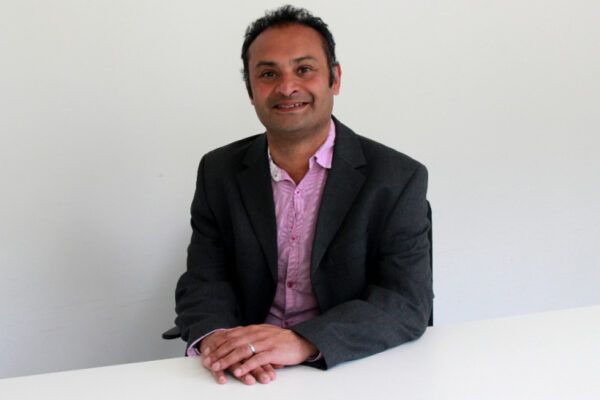A letter from my future self

As his three years as an NHS Innovation Accelerator Fellow comes to an end, Neil Guha reflects on where it all began, with an invitation from his future self to rip up the straitjacket of rigid plans, to rediscover his curiosity, to take risks, and to embrace failure.
This uplifting post aims to encourage and inspire innovators and entrepreneurs working hard to make headway in the jungle of the NHS, to implement and spread health innovation.
Dear Neil,
So, you will sit in the first NHS Innovation Accelerator Quarterly Event, and will look around you with simultaneous excitement and fear. The excitement of the thrill of a new adventure. The fear of being in the presence of a group of talented entrepreneurs, expecting that it will only be a matter of time before you are found out and labelled a fraud.
As a clinical academic, there has always been that nagging feeling of doing two jobs badly instead of one; surely this will now be a case of doing three jobs badly? You will learn from a conversation with a mentor and others, that this is not an uncommon feeling. It even has a name: imposter syndrome. I invite you to embrace the discomfort and be true to yourself. The rich experience of the Fellowship will stimulate you to grow differently. You may not easily be pigeon-holed into a traditional label, but then again, who wants to be a pigeon?
By now you will have written a plan of what you want to achieve over the next three years. This plan will be presented to the high priests of bureaucracy within the NHS. The noose of key performance indicators and the simplicity of a colour on an Excel spreadsheet lie ahead. I invite you to have a narrative but rip up the straitjacket of a rigid plan. The dynamic ability to respond to opportunities will determine progress; strategic opportunism is the fancy name given to describe something that is intuitively obvious. The satisfaction of looking back and joining the dots in retrospect, as Steve Jobs has written about, will evolve from an abstract concept to reality. More importantly, it will inspire rather than suffocate.
You will be in search of a magical template to implement and spread innovation. Remember what Simon Stevens said at the NIA Launch Event: “If innovation was easy to integrate into the NHS, we would have done it by now using a top-down approach, and would not have needed initiatives like the NIA.” Without a template, it relies on individuals – such as the NIA Fellows – with enthusiasm, guile, common sense and perseverance to make headway in the jungle of the NHS. I invite you to reflect on the qualities that got you here; and to consolidate and develop your strengths further by learning from others. This may be more fruitful then seeking a utopic model to replicate.
You will be told more than once that something cannot be done, will not be done, or should not be done. Rather than being despondent or frustrated, meet this with three simple words to yourself: “is that so?” They may well be right, but there is the possibility that they could also be wrong. I invite you to rediscover the curiosity that attracted you to science in the first place, that has been worn down over the years by academia’s preoccupation with a fish called REF.
You understand the theoretical concept that failure is the stepping stone to success, but do you really believe this? I invite you to embrace failure and do not avoid taking risks in fear of what failure might invoke. Spoiler alert – you will encounter failure regularly over the next three years, so why not learn how to do it well?
At the end of your NIA Fellowship, remember to say thank you to your colleagues and wider team at Nottingham who co-created the success and shared the pain of failure. To your NIA Fellow colleagues who have inspired you and shared the journey. To Amanda, Laura and the core NIA Team, who have nurtured the NIA from foetus to adolescence. The achievements of the overall programme is in no small part down to their skill, passion and vibrancy.
This is my invitation for your journey ahead.
Yours,
Future Neil